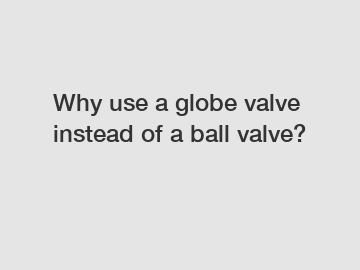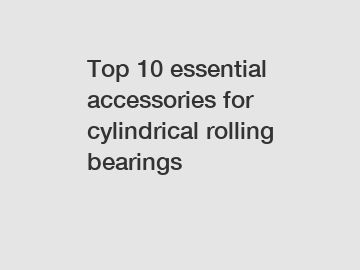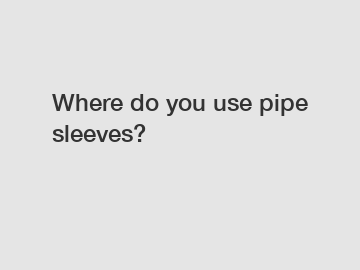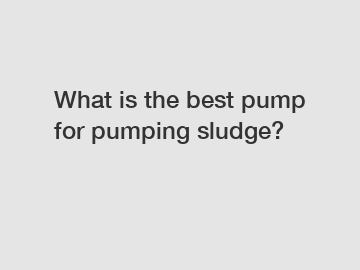Why use a globe valve instead of a ball valve?
Why use a globe valve instead of a ball valve?
Globe valves and ball valves are two commonly used types of valves in various industries. Both serve the purpose of regulating the flow of fluids, but their designs and functionalities differ significantly. Why, then, would one choose a globe valve instead of a ball valve? In this article, we will explore the advantages of using a globe valve in different applications.
1. Control and Regulation:

One of the primary reasons for using a globe valve over a ball valve is its superior control and regulation capabilities. Globe valves are designed to offer precise control of fluid flow due to their linear motion mechanism. The flow rate can be easily adjusted by simply turning the valve stem. On the other hand, ball valves provide on-off control, making them better suited for applications that require minimal flow control or complete shut-off. However, when it comes to applications that require precise regulation, such as in the oil and gas industry, a globe valve is a preferred choice.
2. Pressure Drop:
Another factor that differentiates globe valves from ball valves is the pressure drop. Globe valves have a higher pressure drop compared to ball valves. The internal structure of a globe valve includes a disc and a seat, which creates a tortuous flow path for the fluid. This design results in a higher resistance to the flow, leading to an increased pressure drop across the valve. While this might be seen as a disadvantage in some scenarios, industries that require a controlled pressure drop, such as steam systems, often opt for globe valves.
Additional resources:Ultimate Guide: GG40 Butterfly Valve Explained
How to Choose the Best Pipe Threading Lathe?
Which 10 Best 1000 WOG CF8M Valves To Buy Now For Ultimate Savings?
Ultimate Guide to Blind Flanges: Types, Uses & Installation Tips
What makes Double Row Cylindrical Bearings Essential?
Unlocking the Power of Proportional Solenoid Valves: Everything You Need to Know
Unlocking the Power of Elevator Links: A Guide
3. Resistance to Erosion:
In applications involving fluids with suspended solid particles or high-velocity flows, erosion of the valve components can be a significant concern. Globe valves have a more robust resistance to erosion compared to ball valves. The flow pattern in a globe valve minimizes the direct impact of the fluid on the seating area, reducing the wear and tear caused by erosion. This makes globe valves suitable for applications in industries such as mining, wastewater treatment, or chemical processing, where erosion is a common occurrence.
4. Leakage Prevention:
When it comes to preventing leakage, globe valves have an advantage over ball valves. The design of a globe valve allows for a tight seal between the disc and the seat, minimizing the chances of leakage when the valve is closed. This is particularly crucial in industries that deal with hazardous or expensive fluids, where any leakage can have severe consequences. In contrast, ball valves may have some inherent leakage due to the design of the ball and the seals.
In conclusion, while both globe valves and ball valves have their distinct advantages and applications, globe valves shine when it comes to precise control, pressure drop control, erosion resistance, and leakage prevention. Industries that require accurate flow regulation, such as oil and gas, and those that deal with erosive fluids or demand a minimal chance of leakage, benefit greatly from using globe valves. On the other hand, ball valves are suitable for applications that require simple on-off control and low pressure drops. Ultimately, the choice between the two types of valves depends on the specific requirements of the industry or application at hand.
Are you interested in learning more about China ball valves vs butterfly valves company, china ball valves manufacturers, China pneumatically operated ball valve company? Contact us today to secure an expert consultation!
Additional resources:Revolutionizing home decor with U-channel rubber seal strip - unique DIY hack or overrated trend?
Best tips for choosing electromagnetic proportional valve?
Top 10 ideas for maximizing ROI with o-ring kit box purchase?
Roller bearing vs ball bearing for heavy machinery: Best choice for lasting durability?
DIY O Ring Kit: Create Custom Seals
Are Cast Steel Valves the Future of Plumbing?
Is a Stainless Steel Bookcase Worth It?
189
0
0
Related Articles
-
187
0
0
-
192
0
0
-
Where do you use pipe sleeves?
Are you wondering where you can use pipe sleeves in your home or business?
203
0
0
-
218
0
0
-
What is the best pump for pumping sludge?
When it comes to pumping sludge, selecting the right pump is crucial.
188
0
0
-
223
0
0
-
159
0
0
-
Top 5 expert tips for buying SD Rotary Slip?
Are you in the market for a new SD rotary slip but feeling overwhelmed by the options available?
178
0
0









Comments
All Comments (0)